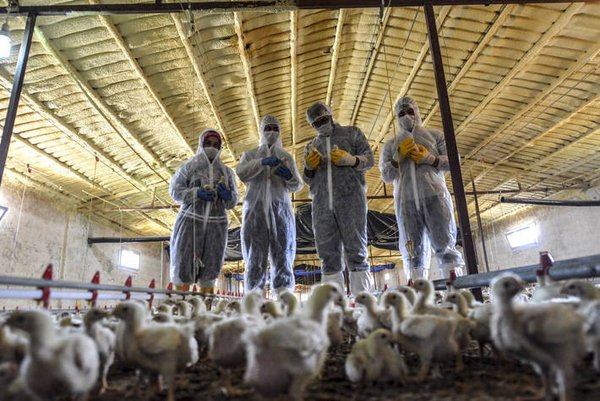- Share this article
- Subscribe to our newsletter
Combating antimicrobial resistance globally through a new Multi-Partner Trust Fund
In a major boost to combat one of the gravest risks to global health a dedicated funding vehicle allowing partners to devote resources to accelerate global action against Antimicrobial Resistance (AMR) was unveiled at a Ministerial Conference in the Netherlands in late June 2019.
The Tripartite is a joint effort by the United Nations Food and Agriculture Organization (FAO), the World Organisation for Animal Health (OIE) and the World Health Organization (WHO), and was launched the AMR Multi-Partner Trust Fund, which is being supported by an initial contribution of five million US dollars from the Government of the Netherlands.
The AMR Trust Fund has a five-year scope, through 2024, and shall aim to scale up efforts to support countries to counter the immediate impact of AMR, arguably the most complex threat to global health.
Antimicrobial resistance refers to the natural ability of bacteria and other microbes to develop resistance to the medicines we use to treat them, and the process is accelerated by inappropriate or excessive use of pharmaceutical products designed to kill unwanted pathogens in humans, animals and crops. In particular, the overuse and misuse of antibiotics in human and animal health is fuelling resistance.
AMR – a “silent tsunami”
According to FAO, drug-resistant microorganisms now account for an estimated 700,000 deaths a year, a figure that could increase to ten million deaths each year if no action is taken.
"Combating antibiotics resistance is fundamentally a behavioural change issue. I'm not talking about washing hands more often, but about ensuring antibiotics are prescribed less readily and that work methods are changed to reduce the chance of resistant bacteria spreading," said the Netherlands Medical Care and Sports Minister Bruno Bruins. "This topic is so important that it deserves to stay at the top of the international political agenda. Countries have made outstanding plans and it's time now to carry them out. The Multi-Partner Trust Fund that we're launching today will help us do this because the problem is too big for countries to tackle this alone."
"Unfortunately, borders don't stop bacteria. But by pooling our efforts and knowledge, we can help each other combat AMR," said Carola Schouten, the Netherlands Minister of Agriculture, Nature and Food Quality. "There's still scope for improving the way antibiotics are used in livestock production, too."
"We all have a role to play to protect the efficacy of antimicrobial agents, and the AMR Trust Fund gives us the opportunity to support the efforts of the different sectors at national, regional and global levels," said the OIE Director General, Monique Eloit. "AMR must be addressed in a One Health approach and supported by long-term commitments from all stakeholders. The OIE is committed to supporting the animal health sector in fulfilling its commitments to ensure that both animals and humans will continue to benefit from available and efficient antimicrobials to treat their diseases for the future.”
(FAO/OIE/WHO/db)
More information:
AMR documents and initiatives at the WHO website





Add a comment
Be the First to Comment